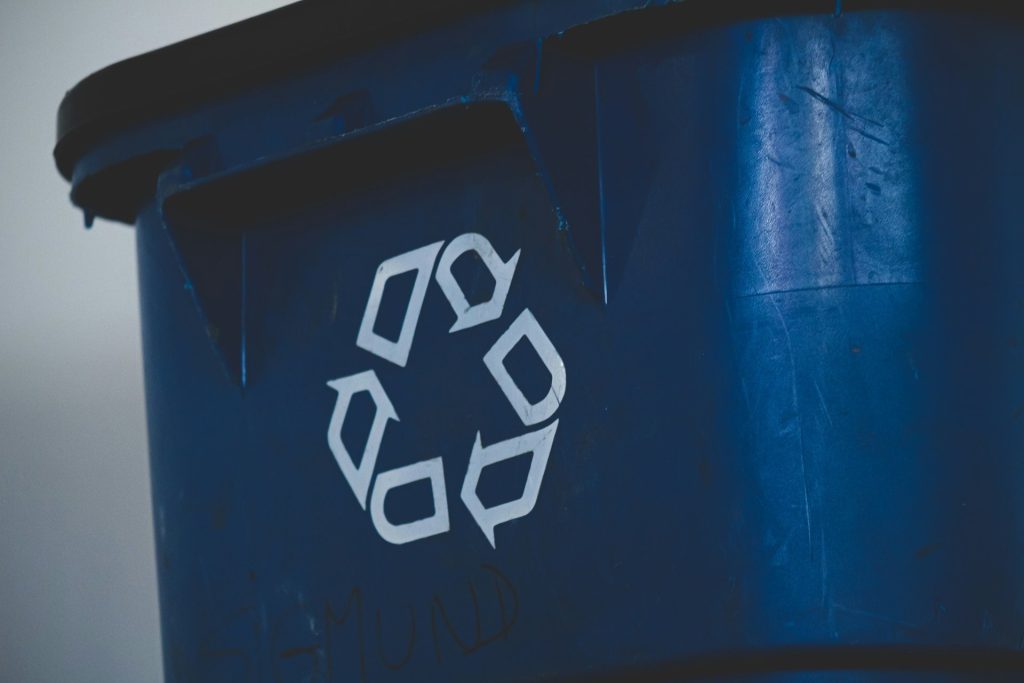Is Your Waste Strategy Aligned with the UK’s 2030 Green Targets? – Daily Business

Why future-focused waste management is essential for business success
Sustainability is no longer a buzzword – it’s a business imperative. With the UK’s ambitious 2030 green targets aiming to reduce greenhouse gas emissions by 68% compared to 1990 levels, companies of all sizes are being called to play their part. For many businesses, especially SMEs and startups, a sustainable future starts with a closer look at waste.
Waste strategy may not seem as urgent as sales or marketing, but it’s one of the most tangible and impactful areas where businesses can contribute to the UK’s climate goals. Efficient, eco-conscious practices like commercial recycling — not only reduces environmental harm, it’s also smart economics. Forward-thinking businesses are aligning their practices with the national green agenda and reaping the benefits in compliance, reputation, and cost savings.

 Photo by Sigmund on Unsplash
Photo by Sigmund on UnsplashUnderstanding the 2030 Green Targets
The UK government has made it clear: sustainability isn’t optional. With commitments to reach net zero by 2050 — and major milestones by 2030 — businesses of all sizes are expected to play their part. These targets include reducing landfill reliance, improving commercial recycling rates, and lowering carbon emissions through greener supply chains and better resource management.
Key targets include:
- Reducing municipal waste going to landfill
- Increasing recycling rates across all sectors
- Cutting food waste by 50%
- Promoting a circular economy through reuse and resource recovery
For businesses, this means being more accountable for the waste they generate, how it is processed, and its broader impact on emissions and resource use. Companies not already adapting to these changes risk falling behind – not just environmentally, but competitively.
Aligning Your Waste Strategy with Sustainability Goals
Aligning your business waste strategy with the UK’s green agenda doesn’t require an overnight overhaul. In fact, many of the most effective changes are simple, scalable, and cost-effective.
- Audit Your Waste
Start by understanding what you’re throwing away. A comprehensive waste audit reveals surprising insights into materials, volumes, and patterns. Knowing your waste streams makes it easier to reduce, repurpose, or recycle effectively – and can uncover inefficiencies costing your business money. - Choose Sustainable Suppliers and Materials
Working with eco-conscious suppliers is a critical step in meeting the UK’s goals. Opt for materials that are recyclable, compostable, or made from recycled content. Reducing packaging, particularly plastics, can also help you avoid potential penalties under schemes like the Plastic Packaging Tax. - Partner with a Green Waste Collector
Commercial waste collection is evolving. Today’s providers offer more than just bin removal – they help businesses meet environmental targets through sustainable sorting, recycling, and disposal methods. Choosing a provider that reports on recycling rates and carbon savings adds a measurable impact to your green credentials. - Train Your Team
Sustainability isn’t a one-person job. Engage your staff with clear guidance on separating waste, reducing usage, and identifying opportunities for reuse. Create visual prompts in the workplace and make sustainability part of your team culture. - Go Circular Where Possible
The circular economy model – where resources are kept in use for as long as possible – is central to the UK’s green ambitions. Consider how your business can adopt circular principles, such as refurbishing old equipment, donating unused materials, or designing products for disassembly and reuse.
Long-Term Benefits for Forward-Thinking Businesses
As the UK pushes towards its 2030 green targets, businesses must stay ahead by adopting forward-thinking waste management strategies. Embracing innovation and technology is key to this evolution. For example, integrating smart systems and Internet of Things (IoT) solutions allows companies to monitor waste production in real-time, optimise collection schedules, and ensure maximum efficiency. These technologies not only reduce operational costs but also minimise environmental impact by preventing unnecessary waste generation and transport emissions.
Regulatory Readiness
Environmental regulations are becoming stricter. Businesses that proactively align their practices with government targets will avoid disruption, delays, and fines. Staying compliant also opens the door to incentives, grants, and partnership opportunities.
Improved Brand Image
Modern consumers and B2B clients alike favour brands that care. Demonstrating a commitment to sustainability – especially around visible issues like waste – enhances trust and strengthens your public image.
Cost Efficiency
Reducing waste often translates to reduced costs. Less material use, more efficient operations, and lower disposal fees can have a meaningful impact on your bottom line. And as resource prices rise, waste reduction becomes an even greater financial win.
Attracting Investment and Talent
Sustainability is increasingly important to investors and jobseekers. Companies that can show measurable progress towards green targets are more likely to secure funding and attract purpose-driven employees.
Contributing to a Greener UK
Ultimately, your efforts feed into a larger vision – a cleaner, greener, more resilient nation. Businesses are central to that transformation. By taking action now, your company contributes not only to its own success, but to a healthier environment and stronger economy.
With 2030 fast approaching, it’s time for UK businesses to ask a crucial question: is your waste strategy part of the solution?
By aligning waste management practices with the UK’s sustainability targets, companies can reduce their environmental impact while unlocking operational and reputational advantages. Whether you’re a tech startup, a retail chain, or a small manufacturer, efficient and future-focused waste strategies are a powerful step toward a greener – and more profitable – future.
#Waste #Strategy #Aligned #UKs #Green #Targets #Daily #Business




